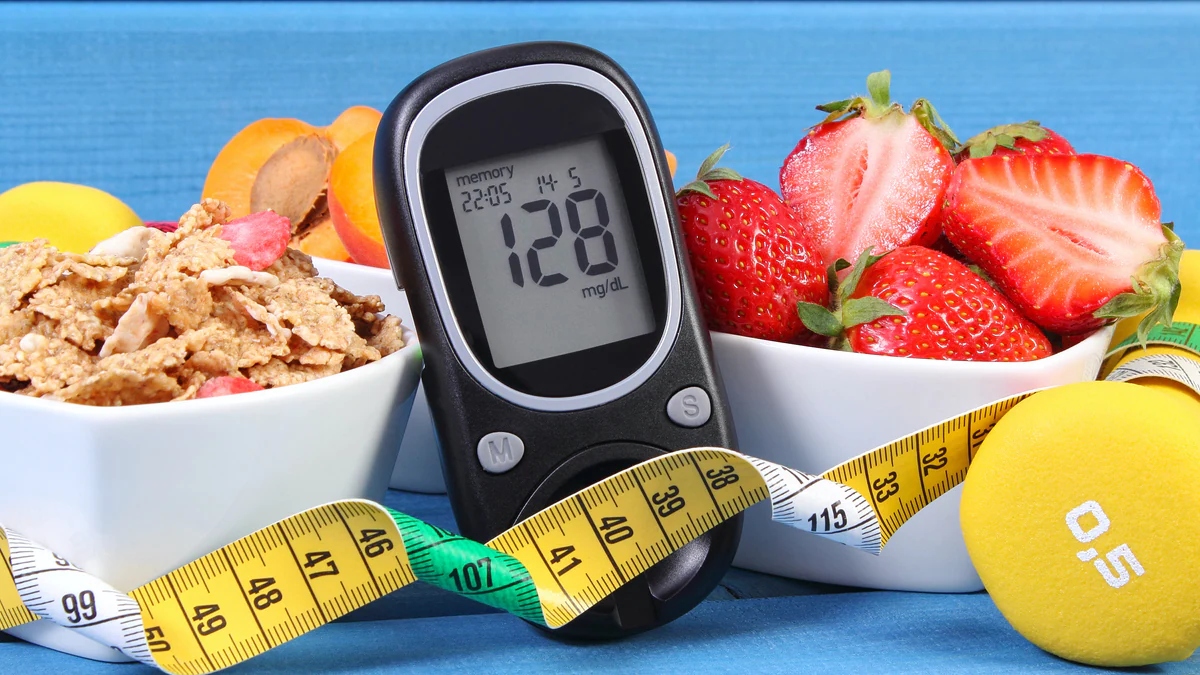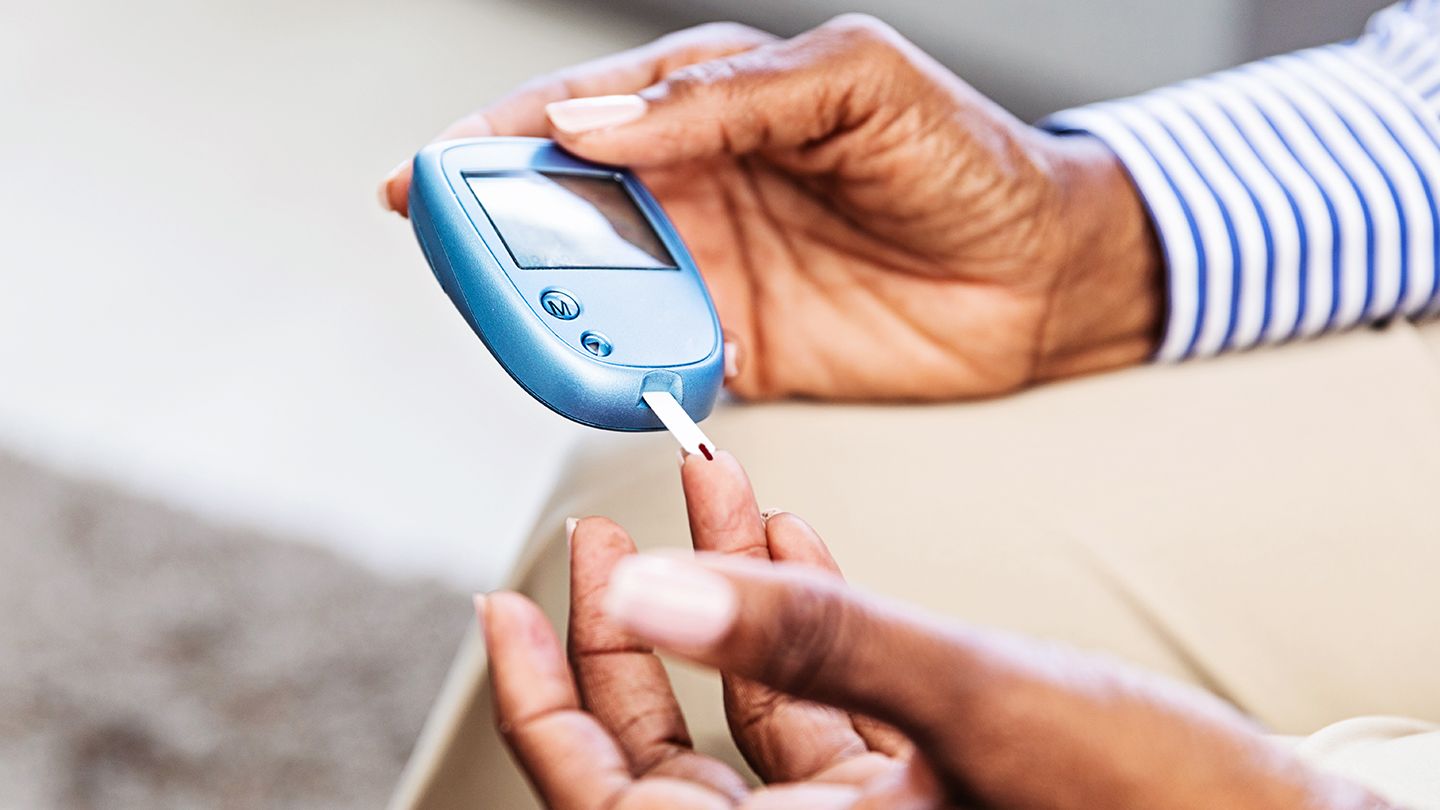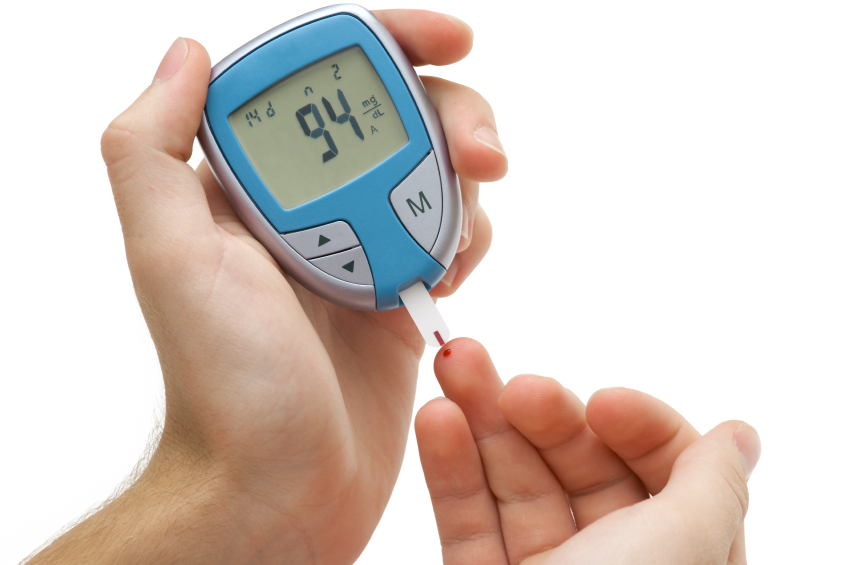Blood Sugar Management - Take Charge Of Your Health Now
Discover effective strategies for blood sugar management. Optimize your health with expert tips and advice.
Author:James PierceReviewer:Karan EmeryMar 05, 2024138 Shares27.5K Views

Blood sugar managementis crucial for maintaining overall health, particularly for individuals with diabetes or those at risk of developing the condition. Blood sugar, also known as blood glucose, refers to the sugar present in the bloodstream and serves as the primary source of energy for the body's cells. Proper blood sugar management involves regulating blood glucose levels within a healthy range to prevent complications and promote well-being.
Understanding Blood Sugar Regulation
Blood sugar levels are regulated by the body's intricate system involving hormones, primarily insulin and glucagon. Insulin, produced by the pancreas, facilitates the uptake of glucose from the bloodstream into cells, where it is utilized for energy or stored for future use. Glucagon, also produced by the pancreas, works in the opposite manner, releasing stored glucose into the bloodstream when blood sugar levels are low.
The Importance Of Blood Sugar Management
Blood sugar management is essential for various bodily functions, including energy production, brain function, and overall metabolic health. Chronic high blood sugar levels, known as hyperglycemia, can lead to complications such as cardiovascular disease, kidney damage, nerve damage, and vision problems. On the other hand, prolonged low blood sugar levels, known as hypoglycemia, can result in dizziness, confusion, seizures, and loss of consciousness.
Regularly Check Your Blood Sugar
You can determine how effectively you are managing your diabetesby regularly checking your blood sugar levels, noting the results, or using an app to log the data. Consult a diabetes educator and your physician about the frequency of blood sugar checks.
It's not necessary for every diabetic to check their blood sugar every day. However, some users might need to check it numerous times every day. Make sure to check your blood sugar four times a day or more if you have type 1 diabetes.
You will often do a blood sugar test right before meals and right before bed. You could also take a blood sugar reading:
- After dining out, especially if you've consumed items you wouldn't typically eat.
- If you're feeling unwell.
- Before and after you work out.
- If you're under a lot of stress.
- If you overindulge in food.
- Any new medications you take that might have an impact on your blood sugar.
For both you and your doctoe, keep a record. This is going to be really beneficial if you are struggling to control your diabetes. Additionally, it will advise you on what works and what doesn't to manage your blood sugar. Put this in writing:
- The daytime hours.
- Your level of blood sugar.
- The quantity of sugaror carbs you consumed.
- The kind and dosage of insulin or diabetes medications.
- The kind of activity you do and how long you do it for.
- Any atypical occurrences, including feeling anxious, changing your diet, or becoming sick.
How Can My Blood Sugar Be Measured?
To check your blood sugar, use a continuous glucose monitor (CGM) or blood sugar meter (also known as a glucometer). The amount of sugar in a tiny sample of blood, typically drawn from your fingertip, is measured by a blood sugar meter. A CGM measures your blood sugar every few minutes using a sensor that is implanted under your skin. To ensure that your CGM readings are correct, you must continue test your blood sugar every day even if you wear a CGM.
When Should I To Take A Blood Sugar Reading?
The type of diabetes you have and whether you take any medications for it will determine how frequently you should check your blood sugar.
The following are typical times to check your blood sugar:
- Right after you wake up, before you consume any food or liquids.
- Before a meal.
- Two hrs following a meal.
- Before going to bed.
Checking your blood sugar more frequently, especially before and after physical activity, may be recommended by your doctor if you have type 1 diabetes, type 2 diabetes and are on insulin, or if you frequently have low blood sugar.
What Do Blood Sugar Target Mean?
A blood sugar target is the range that you make every effort to maintain. Typical goals are as follows:
- 80–130 mg/dL before to a meal.
- Less than 180 mg/dL two hours after the start of a meal.
Your age, any additional medical conditions you may have, and other variables may affect your blood sugar targets. Make sure you discuss which goals are most appropriate for you with your healthcare team.
How Can A Low Blood Sugar Be Treated?
Check your blood sugar if you have any other symptoms or feel shaky, sweating, or extremely hungry. Check your blood sugar even if you don't have any symptoms but suspect that it might be low. Should your blood sugar level be below 70 mg/dL, take one of the following action right away:
- Four glucose pills should be taken.
- 4 ounces of fruit juice should be consumed.
- Instead of diet drink, down four ounces of ordinary soda.
- Consume four hard candy pieces.
After waiting fifteen minutes, take another reading of your blood sugar. If it will be an hour or longer before your next meal, have a snack and repeat one of the aforementioned treatments until your blood sugar is 70 mg/dL or higher. Ask your doctor if there are any changes that need to be made to your treatment plan if you experience low blood sugar issues.
How Can High Blood Sugar Be Treated?
Consult your physician about how to maintain blood sugar levels within the desired range. Your physician might recommend the following:
- Increase your level of activity. Engaging in regular exercise can assist in controlling your blood sugar levels. Important note: if your urine contains ketones, avoid exercising. This may cause an even greater rise in blood sugar.
- As directed, take your medication. Your doctor could adjust the dosage or timing of your medication if your blood sugar is consistently elevated.
- Adhere to your diabetic diet plan. If you're struggling to follow it, ask your physician or nutritionist for assistance.
- Follow your doctor's instructions to check your blood sugar. If you're unwell or worried about having high or low blood sugar, check more frequently.
- Consult your physician about modifying your insulin dosage and using different kinds of insulin, such as short-acting insulin.
Key Factors Affecting Blood Sugar Levels
Several factors influence blood sugar levels, including diet, physical activity, medication, stress, illness, and hormonal changes. Carbohydrates, found in foods such as grains, fruits, vegetables, and dairy products, have the most significant impact on blood sugar levels as they are broken down into glucose during digestion. Proteins and fats have a lesser effect on blood sugar but can still influence overall metabolic health.
Dietary Strategies For Blood Sugar Management
A balanced diet plays a crucial role in blood sugar management. Focus on consuming complex carbohydrates with a low glycemic index, such as whole grains, legumes, and non-starchy vegetables, which are digested more slowly and have a minimal impact on blood sugar levels. Incorporate lean proteins, healthy fats, and fiber-rich foods into meals to promote satiety and stabilize blood sugar levels.
Blood Sugar Management - FAQs
Why Is Blood Sugar Management Important?
Proper blood sugar management is vital for overall health as it helps prevent complications such as diabetes, heart disease, and nerve damage. Stable blood sugar levels also support energy levels and mood stability.
How Can I Manage Blood Sugar Levels Naturally?
Natural methods for managing blood sugar levels include consuming a balanced diet rich in fiber, protein, and healthy fats, staying hydrated, exercising regularly, managing stress levels, and getting enough sleep.
What Foods Help Regulate Blood Sugar Levels?
Foods that help regulate blood sugar levels include whole grains, vegetables, fruits, lean proteins, nuts, and seeds. These foods have a lower glycemic index and can help prevent spikes in blood sugar levels.
How Often Should I Monitor My Blood Sugar Levels?
The frequency of blood sugar monitoring depends on individual factors such as age, health status, and medication usage. Those with diabetes or at risk for diabetes may need to monitor more frequently, as advised by their healthcare provider.
What Is The Best Way To Manage Blood Sugar?
Maintaining a healthy weight, engaging in regular physical activity, and eating a diet rich in fruits and vegetables can all be beneficial. Other advice is to monitor your blood sugar levels and determine what causes them to rise or fall. Don't miss meals and eat at regular intervals.
What Is Best Treatment For High Blood Sugar?
Adding more short-acting insulin or making adjustments to your insulin regimen can help manage hyperglycemia. An additional dose of insulin is called a supplement, and it is used to help temporarily lower elevated blood sugar levels. If you have high blood sugar, find out from your doctor how often you need to take an insulin supplement.
How Can I Control My Blood Sugar Immediately?
- Taking medicine or insulin as directed by a doctor.
- Modifying one's dietary consumption.
- Moving around and being active.
- Maintaining appropriate hydration.
- Keeping an eye on and modifying blood sugar levels.
How Can Stress Affect Blood Sugar Levels?
Stress can lead to fluctuations in blood sugar levels due to the release of stress hormones such as cortisol and adrenaline. Managing stress through relaxation techniques, mindfulness, and regular exercise can help stabilize blood sugar levels.
Conclusion
Adopting healthy lifestyle habits, such as maintaining a balanced diet, staying physically active, managing stress, and getting adequate sleep, can support long-term blood sugar management and reduce the risk of complications associated with diabetes. By taking proactive steps to manage blood sugar levels effectively, individuals can improve their overall health and quality of life.
Jump to
Understanding Blood Sugar Regulation
The Importance Of Blood Sugar Management
Regularly Check Your Blood Sugar
How Can My Blood Sugar Be Measured?
When Should I To Take A Blood Sugar Reading?
What Do Blood Sugar Target Mean?
How Can A Low Blood Sugar Be Treated?
How Can High Blood Sugar Be Treated?
Key Factors Affecting Blood Sugar Levels
Dietary Strategies For Blood Sugar Management
Blood Sugar Management - FAQs
Conclusion

James Pierce
Author

Karan Emery
Reviewer
Latest Articles
Popular Articles

